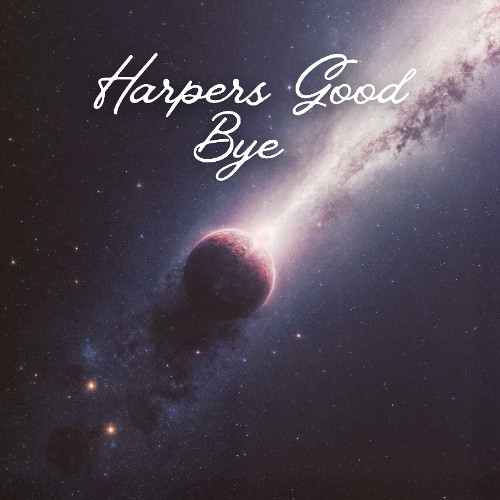Phrases by Clayton Durant and Alex Jeffrey.
Music distribution is nothing new.
Even because the earliest days of music, distribution has been a crucial element for driving the recorded and publishing enterprise. Nonetheless, the operate of the music distributor has modified over the previous few years as know-how, consolidation, and the emergence of latest, properly financed firms has compelled many to ask: “What’s the position of the music distributor in 2022?”
At the moment’s music enterprise has discovered the convergence of impartial artists and distribution to be one of the vital vital areas of progress. Based on MiDIA, impartial labels and artists elevated their mixed streaming market share to 31.5% in 2021. This progress comes alongside RIAA’s annual year-end data, which famous that the recorded music enterprise grew by 23% to $14.99 billion from 2020 to 2021.
With impartial artists incomes a higher piece of the recorded income pie, it’s no marvel the conflict for impartial distribution has develop into more and more intensified over the previous few months alone. Contemplate the truth that TikTok, the fastest-growing social media platform of the previous two years, launched SoundOn, a music distribution platform whereby artists can add their music on to the app and distribute it to numerous music streaming companies with none distribution or transaction charges.
Even main labels are getting in on the impartial distribution motion. Warner Music Group introduced its acquisition of Qanawat Music, a music distribution firm centered closely within the Center East and North Africa area. Earlier this previous yr, Sony acquired AWAL for $430 million, a purchase order which was just lately approved by the U.Okay.’s Competitors and Markets Authority.
One factor is obvious: distribution is likely one of the best sectors of the music enterprise. To debate the altering position of music distribution, EDM.com spoke with Kevin Breuner, SVP of Artist Engagement and Training at CD Baby and host of the DIY Musician podcast, to debate the position a music distribution firm performs in at present’s music trade.
EDM.com: From CD Child’s perspective, what are among the benefits of an artist going with a distribution platform like yours in comparison with signing with—as an instance—one of many three main labels?
Kevin Breuner: There’s a big distinction between working with a platform like CD Child and dealing with a serious label.
Initially, you are going to be giving freely most of your rights once you signal with a label. With CD Child, artists retain all their rights. Their music is theirs for the retaining, they usually make all the cash from it. In at present’s music local weather, if an artist has their sights set on a serious label deal, they’re going to need to work at increase their fan base and profession earlier than that will develop into a actuality. That means, an indie distributor will nonetheless have to be part of their plan.
EDM.com: With a plethora of choices for artists to decide on a DIY distribution platform, what separates CD Child from the opposite choices out within the market?
Kevin Breuner: CD Child has been a trusted ally for indie artists for over 20 years. The reason being as a result of we not solely provide them a collection of companies at one worth, however we’ve paid artists each week with out fail in that point. Pushing recordsdata to the assorted platforms is the straightforward half—getting artists paid correctly for each single stream and utilization of their music is the arduous half.
We take a 9% reduce of the backend, which implies our pursuits are aligned with the artist. We’re incentivized to exit and accumulate each single income stream and bit of cash owed to them, as a result of we generate income as properly.
EDM.com: The expansion of platforms like CD Child are occurring in markets exterior of the US equivalent to in Africa, Latin America, and Asia. What’s the position of a music distributor in rising markets like these? How could it differ from the position a distributor has in say a market like the US?
Kevin Breuner: Our focus has all the time been a worldwide focus. It’s been our mission to ensure an artist’s music is offered on each platform all over the world, and streaming has actually accelerated this.
Scroll to Proceed
Many creating markets had adopted streaming earlier than it was well-liked within the U.S. This not solely introduced extra income streams in from new territories, nevertheless it additionally helped explode the creator class in these areas. This has constructed a extra world indie artist group. Our distribution is offered all over the world and our web site is presently localized in 3 languages—English, Spanish and Portuguese—with extra on the way in which.
EDM.com: Out of your viewpoint, did the COVID-19 pandemic impression the music distribution market?
Kevin Breuner: Sure. COVID impacted all elements of life, so it positively had an impression on the artist group and their habits.
Initially, when it was just the start of the pandemic, artists went into “hyper launch mode” and began releasing as a lot content material as attainable. This was partly as a result of every little thing was disrupted, particularly touring. Because the pandemic went on, I believe artists began adopting a “wait and see” sort mode. That means, it appeared like there have been a pair false begins on getting again out on the highway.
I believe the heaviness of the state of the world has additionally impacted creativity. It seems we’ve turned a nook on this side, and I count on to see one other surge in releases and artist exercise as we method Summer season 2022.
EDM.com: What about rising applied sciences like NFTs? How are they impacting the music distribution market?
Kevin Breuner: NFTs are nonetheless utterly unproven for the common artist, so it hasn’t impacted the distribution market but. There may be a number of work to be executed earlier than that could be a normal a part of an artist’s promotion plan and income streams. I believe developments which might be extra attention-grabbing to artists proper now are developments like TIDAL’s artist-centric royalties, which tries to make streaming extra worthwhile for all artists.
EDM.com: Based on a report by Allied Market Analysis, the worldwide music distribution companies trade generated $911.87 million in 2020, and is anticipated to succeed in $1.68 billion by 2030. What are among the elements driving this progress into the longer term?
Kevin Breuner: The barrier to music creation has mainly been eradicated. There are such a lot of instruments and apps that assist artists begin making and recording music from day one.
It’s additionally simpler and cheaper to report than ever earlier than. That’s not solely true right here within the U.S., however worldwide, so the quantity of artists coming into the market has exploded. One other issue is that the adoption of streaming in new markets has pushed a number of music consumption, particularly for impartial artists.
EDM.com: For artists to realize famous person standing just like the Justin Biebers and The Weeknds of the world, do artists in some unspecified time in the future have to enter the foremost label ecosystem and work by that machine? In different phrases, can distributors like CD Child and others can construct superstars simply as successfully as main labels because of the emergence of platforms like TikTok?
Kevin Breuner: Sure, it’s attainable for a famous person to be constructed from an impartial distributor. Nonetheless, on the famous person stage—whether or not you keep impartial or not—you are going to want a crew to assist handle all of the alternatives as that artist simply cannot do it on their very own.
Crucial factor is that artists perceive the tradeoffs they is likely to be requested to make. Particularly when a label is concerned, they might have to surrender issues like not proudly owning their masters or giving up a reduce of their merch cash. The advantage of the present local weather, the place artists usually have an honest following earlier than a label is concerned, is that normally they’ve extra leverage when negotiating a deal. In years previous earlier than artists had the flexibility to construct audiences on-line, the label or administration usually had all of the leverage. Artists want to know the worth they bring about to the desk and work with those that share the identical imaginative and prescient for his or her profession.
EDM.com: TikTok simply introduced that it’s also entering into the music distribution enterprise. For a lot of artists, TikTok has develop into crucial platform for them to market their music on. How does a platform like this entering into music distribution doubtlessly disrupt the marketplace for CD Child and different distribution firms if in any respect?”
Kevin Breuner: In the end, we proceed to be the most effective we will, however distribution is greater than a tech downside to be solved. The CD Child distinction is that we’re totally invested within the success of artists and rising the impartial music group, not simply pushing recordsdata. We wish artists to really feel supported and valued.
As an artist myself, I imagine it is vital to work with firms which have the artist’s greatest pursuits in thoughts. I am unsure that relationship could be there if you happen to’re handing off distribution to a social media platform whose focus is elsewhere.





